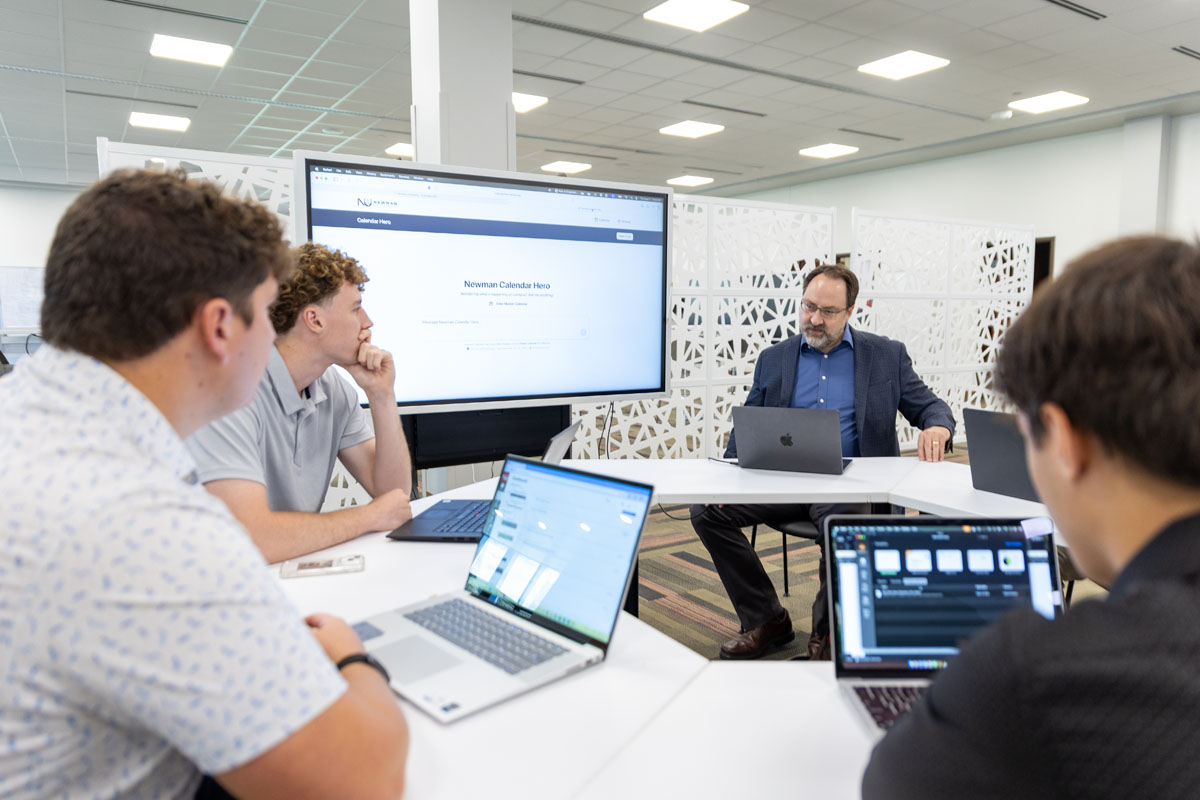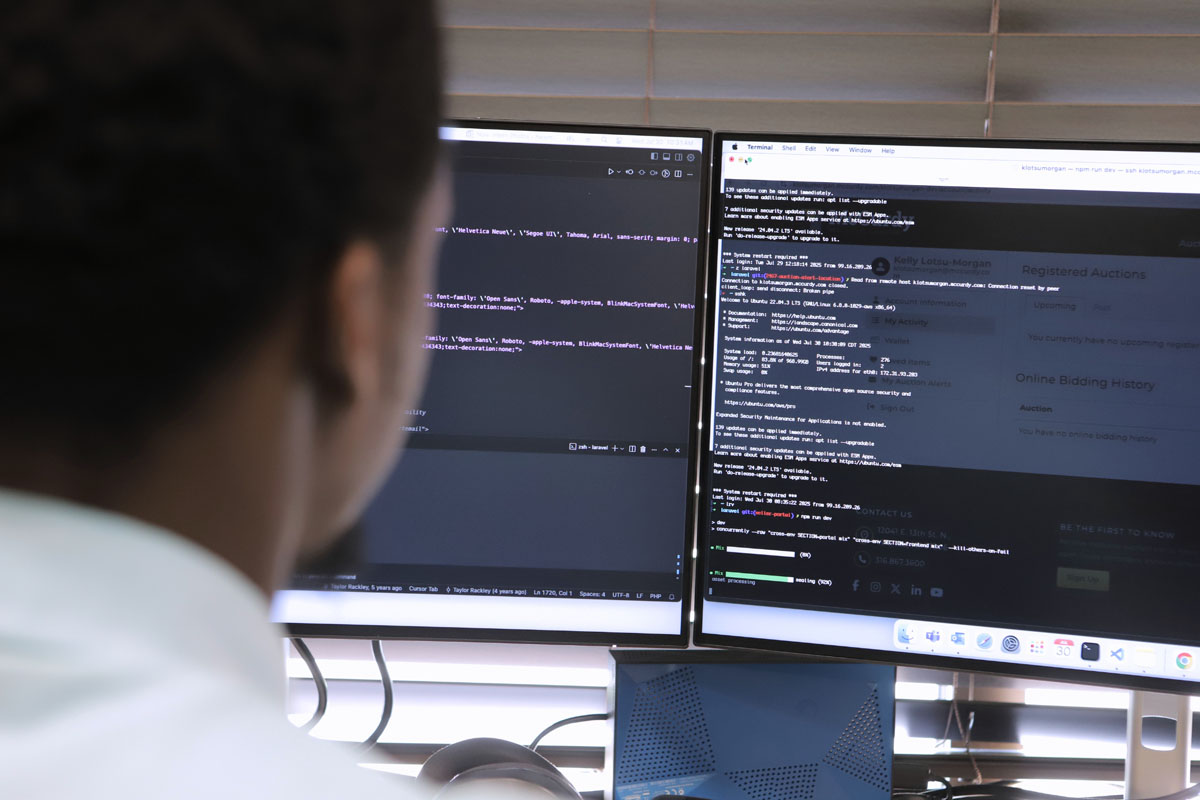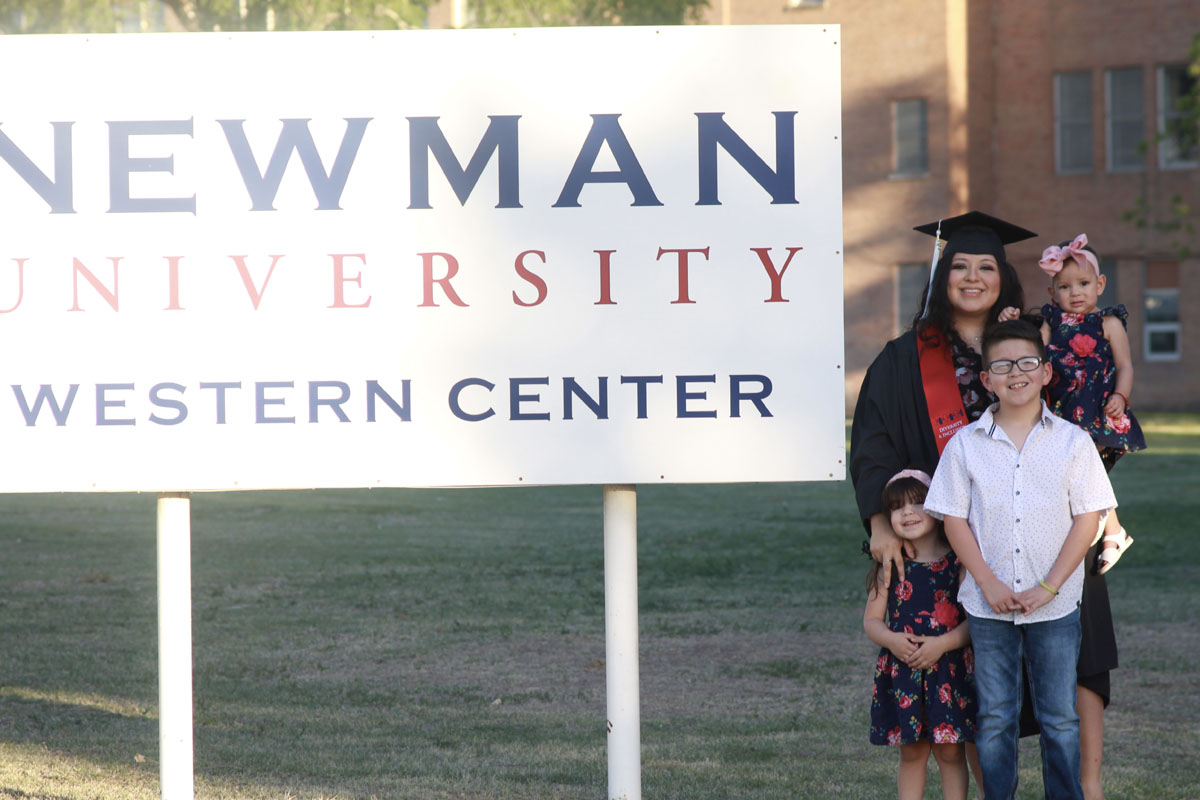
New innovative approaches prepare students for the unknown
At Newman University, innovation isn’t an abstract idea — it’s transforming the student experience, reshaping campus and expanding Newman’s reach in Kansas.
New initiatives have boosted enrollment, reduced student debt, improved retention, created welcoming spaces and prepared students for careers that don’t even exist yet.
Former Canadian Prime Minister Justin Trudeau said, “The pace of change has never been this fast, yet it will never be this slow again.” That reality defines higher education today, with fewer students, shifting workforce demands and skepticism about a degree’s value. But Newman isn’t bracing against the current; it’s learning to navigate it.

“Because the student population is changing, we have to change to meet their needs,” explained Newman President Kathleen S. Jagger, Ph.D., MPH. “If we don’t change or innovate, Newman isn’t going to be the right place for students.”
Changes grounded in values
Adapting to change doesn’t mean abandoning tradition.
“Traditions can change, but our values are constant,” Jagger said. “They’re anchors for us. Those values represent who we are and who we want to be.”
Under the guidance of Presidential Adviser for Strategy and Innovation Valerie Hennings, Newman’s vision statement was recently designed to realign with the evolving higher education ecosystem, the needs of students and the university.
Jagger described a “bold commitment to innovation and excellence” as a formula for resilience and emphasized that innovation is an expression of Newman’s core values — academic excellence, Catholic identity, service and global perspective.

“Specifically, when it comes to Catholic identity, we commit to adapt to better serve our students and live our mission,” Jagger explained. “We are building a culture of positive change … recognizing that adaptation is a necessity for thriving.”
Rethinking academics, enrollment and retention
Newman’s innovative academic and enrollment practices are designed to anticipate tomorrow’s workforce needs by focusing on skills growth not just job outcomes.
“We want to teach our students to be self-aware, self-advocates and lifelong learners who can adapt to changing career landscapes,” Jagger said. “Helping students see how their experiences connect to opportunities is good preparation for jobs that don’t exist yet.”
Vice President of Academic Affairs Alden Stout highlighted the new Pathmaker program, which offers a customizable, three-year degree program with an optional master’s. It not only provides programs in high-demand fields, it also allows students to graduate with 25% less debt.

project through his three-month internship with
McCurdy Real Estate & Auction in Wichita.
“Pathmaker offers project-based learning to ensure students can critically reason, effectively communicate, develop leadership and professional skills, understand and appreciate the Catholic intellectual tradition and build on their own creative artistry and innovation,” Stout said.
Enrollment has also been reimagined. Proactive direct-admit recruiting and other admissions efforts have resulted in a record-breaking 27% year-over-year increase from 2024-2025 and the second-largest new undergraduate class in university history since 2010.
“This speaks to the confidence students and families have in our programs and the great work of our enrollment professionals,” said Vice President of Enrollment Management Michael Probus.
In addition to recruiting more students, retaining students is another high priority. Since 2021, Newman has collaborated with CREDO, a company that provides strategic solutions in various areas of higher education, to help remove barriers to retention and improve student success.
Extending Newman’s impact
Newman is also serving as the ultimate problem-solver for education deserts within the state — specifically, in southwest Kansas communities where no colleges or universities are located nearby. Stout explained that cohort-based models help students take required classes, graduate on time and feel career-ready.
Ryan Ruda, president of Garden City Community College, has witnessed the university’s transformational impact firsthand: “Newman has answered the call to bring high-quality academic programs to southwest Kansas. You’ve helped turn a higher education desert into an oasis,” he said.
Partnerships reinforce this mission. Through collaborations with the Hispanic Education Development Fund, Newman has doubled its reach to first-generation students in southwest Kansas. Engagements with the Kansas Leadership Center, the Hispanic Chamber of Wichita and the Data Professionals of Wichita connect students with leadership training, mentorship and local business networks.
Building belonging and student support
Innovation at Newman extends into the heart of campus life.
The spiritual companions program, launched in 2021, connects each athletics team, club and student organization with alumni, staff and faculty members who offer prayer and support.
“Spiritual companions strengthen our community,” Jagger said. “We want our students to grow in every dimension, and this connects them with another adult if and when they need support.”

Master of Science degree with a concentration in English for
speakers of other languages curriculum and instruction.
The President’s Student Cabinet was also established with student voices in mind. Students share ideas, feedback and questions directly with Jagger during monthly meetings.
Meanwhile, Project NU Belong has shifted from a traditional diversity, equity and inclusion committee into a broader effort on hospitality and belonging — demonstrating how Newman adapts to cultural shifts without losing its values.
“We want everyone to feel like they’re welcomed and belong,” Jagger said. “That’s an important part of who we are at Newman.”
Physical spaces have also been transformed with a student-centered approach. An empty bookstore became the Student Success Center, a hub that was shaped by nine months of campus-wide feedback. Supported by a Title III grant, the project also inspired a renovation of the first-floor library space into the Center for Teaching and Learning, enhancing faculty resources.
“Most institutions don’t have more than 30% of their faculty participating in communities of practice, let alone have communities of practice,” Stout said. “Marguerite Regan (director of the Center for Teaching and Learning) has done a fantastic job of providing so much value that faculty are participating.”
Prepared for the future
Newman University’s innovative approaches echo the wisdom of namesake St. John Henry Newman, who once wrote, “To live is to change, and to be perfect is to have changed often.”
Set to be formally recognized as a Doctor of the Catholic Church, Newman’s words continue to guide the university’s vision to transform lives through education and prepare graduates for an uncertain future in which they can lead lives of significance. The doctor designation is bestowed on canonized saints who have made significant contributions to theology and doctrine through research, study or writings.
“Ultimately, we want to create a culture of continuous improvement so that we’re always meeting students where they are,” Stout added. “Innovation for the common good of our students, the university and community — that’s what makes it worthwhile.”

